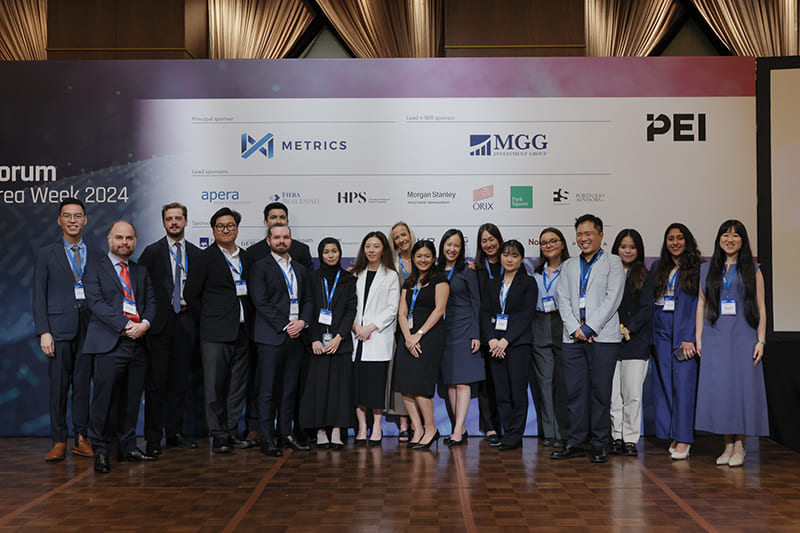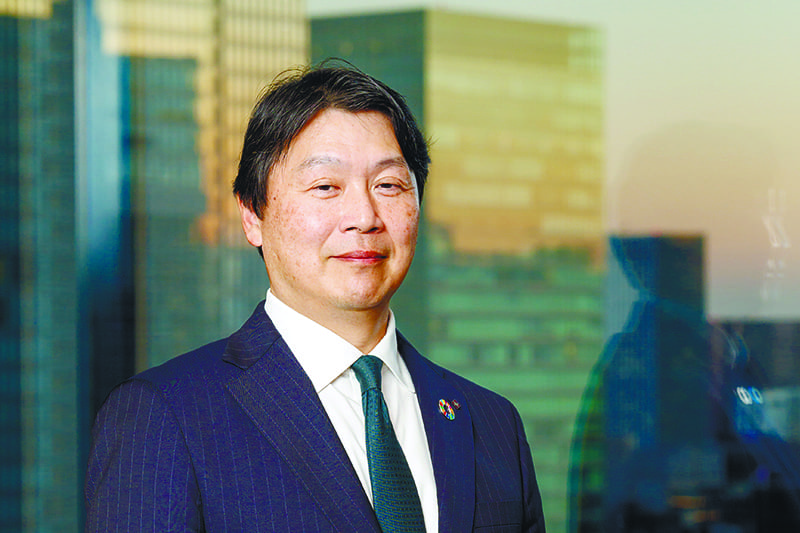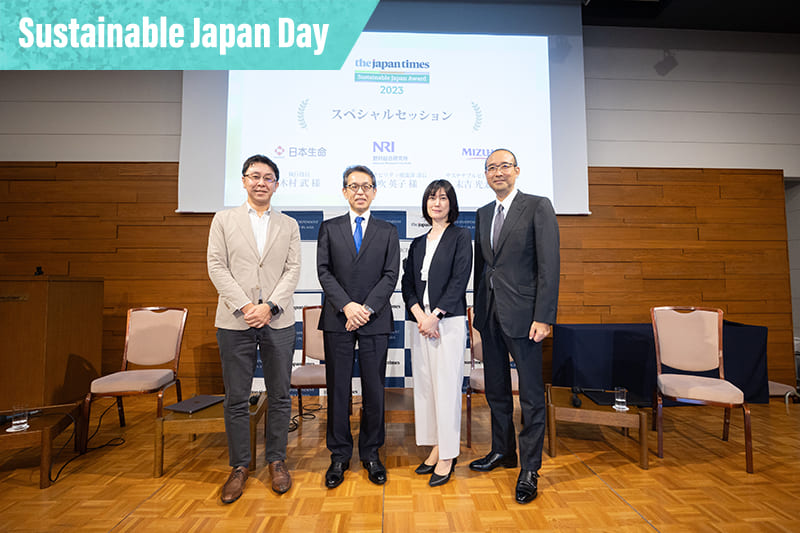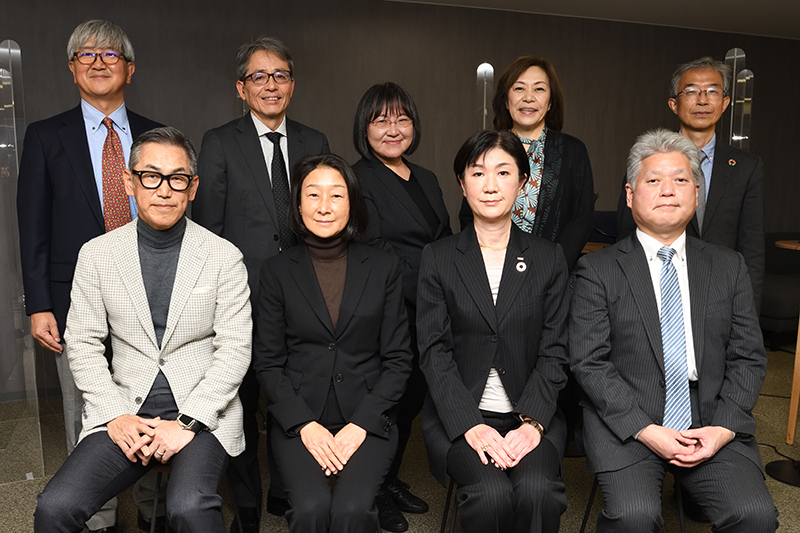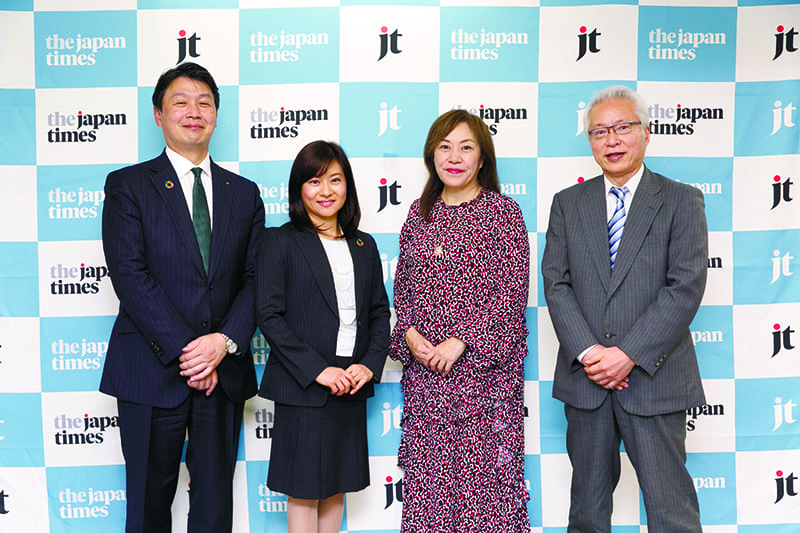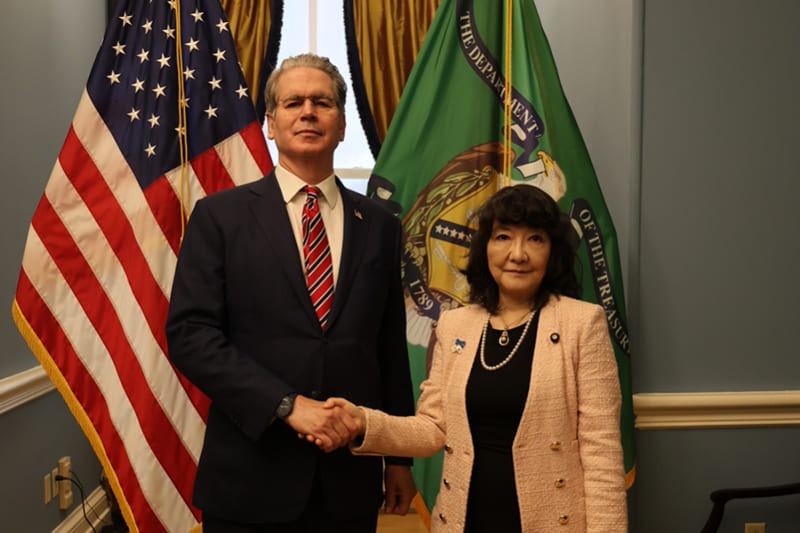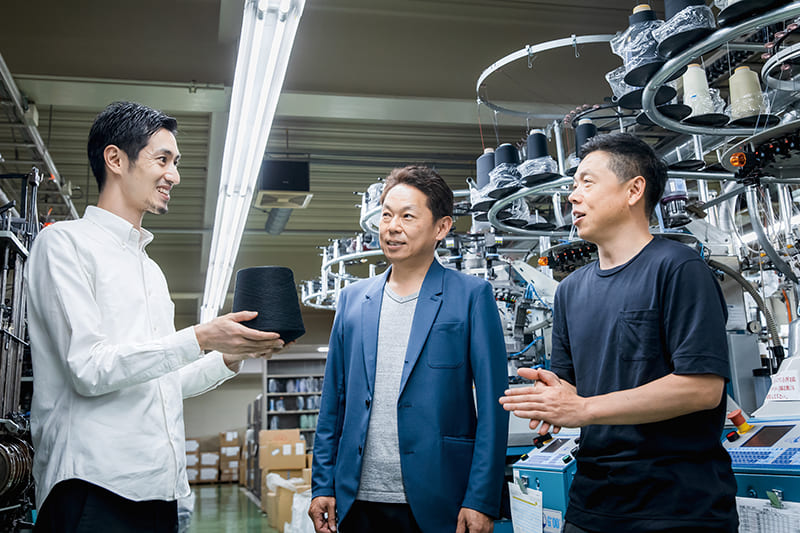August 23, 2024
Nissay Asset’s CEO discusses sustainability trendsetters
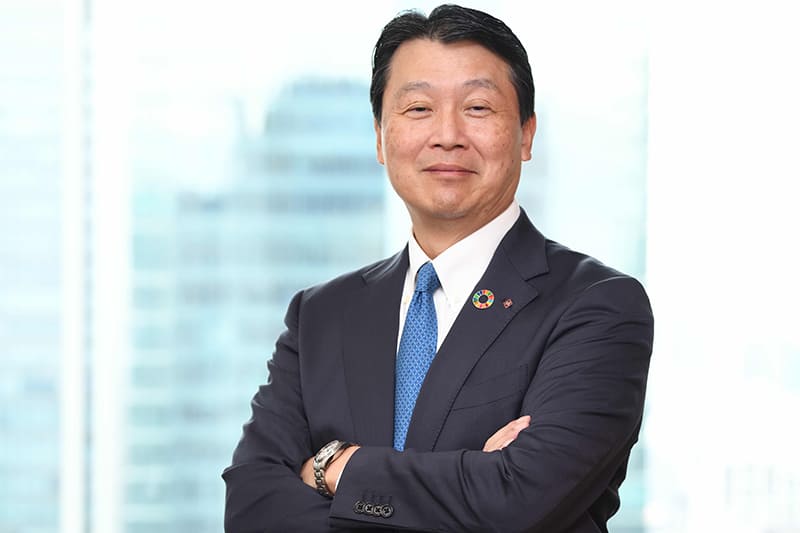
Can investors contribute to addressing global issues and still seek a financial return at the same time? The answer is yes, if you catch major social trends, said Hiroshi Ozeki, the president and chief executive officer for Nissay Asset Management Corp.
“If an issue is important in global megatrends, there is a social demand for solving the problem and therefore a need to make it business,” Ozeki said. It is not enough to invest in companies that are doing something good for society. More critical is to find social issue-oriented businesses that can generate profits, and then support them through investment. “That is an important point in being able to maintain sustainable investment,” he said. Last year, Nissay Asset Management won the Sustainable Japan ESG Excellence Award, hosted by The Japan Times.
Megatrends are major movements that are expected to influence the world for a long time — climate change, technological evolution like generative AI, aging societies, human rights and global divisions between superpowers.
“When you invest for the long term, if you pick something that is part of a megatrend, that will be eventually lifted by a rising tide,” he continued. “On the other hand, if the business runs against a megatrend, even a very attractive company could see its business disrupted by technological development or burdened with huge costs in responding to an issue.”
Along with taking a bird’s-eye view, investors also need an eagle eye for the development of specific products and services related to rising trends. “As for impact funds aiming to mitigate global warming, technologies keep evolving over time, and the growing businesses that you should invest in are changing. That’s why you must be very careful” about trends, Ozeki said.
Take energy usage as an example of how to hunt for promising business. Although how much carbon reduction companies achieve or how much renewable energy they introduce always draws attention, it is more valuable to look at their supply chain, think about which aspect of its energy — generation, transmission, storage or utilization — will have the strongest impact on a greener society, and then search for companies developing effective technologies for each. “In that way, it is possible to find a company that can contribute well to responding to climate change,” Ozeki said.

Another important factor for achieving both a social impact and a financial return is to check if the company’s technology is stable and scalable — ideas and trials alone don’t bring a return on investment. Similarly, even if a technology is outstanding, if it applies only to an extremely small market or for example lacks overseas customers, it likely won’t bring much of a return.
Therefore, to judge a technology, product or service, it is important to be responsive to rapidly changing global trends. “It depends on the timing whether the technology gains a spotlight, gets into practical use or develops with scalability. So we want to make our antennae go up all the time,” Ozeki said.
For example, hydrogen power used to be minor due to scarce infrastructure. But now it has become an important part of managing variability in the supply of renewables such as wind and solar power. Also, new technologies including direct air capture (DAC), which removes carbon dioxide from the atmosphere, may have a positive outlook as they evolve, he said.
To be responsive to the latest trends in technology, Nissay Asset has a team that creates analyses and networks with global groups such as PRI (Principles for Responsible Investment), a U.N.-supported network of investors that works to incorporate ESG into sustainable investment, and AIGCC (the Asia Investor Group on Climate Change), an initiative to encourage action among Asian asset owners and asset managers.
To evaluate business values, Ozeki wants companies to disclose their related information, and says there is no need to disclose information that is irrelevant to those values. “I want corporate leaders to think about whether their responses to climate change, human capital and nature capital are related to their materiality in their corporate values,” he said, adding that they must also consider whether the issues provide them with corporate risks or opportunities.
At the end of the interview, Ozeki said the global trend of ESG is not going backward even though there is opposition against it in parts of the United States. “Since it is necessary, and also since some people feel its advantages because it creates new jobs, sustainability investment will continue,” he said.
The Sustainable Japan Award commends individuals, companies and organizations who have made advances in sustainability efforts. To learn more, visit https://sustainable.japantimes.com/sjaward2024

